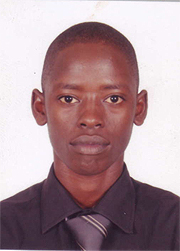Till 1994, the Rwandan government had destroyed the identity and unity on which the Rwandan nation had been built on. The massacre and violence was made possible due to division and sectarianism championed by policies lied down by the colonialists trying to flame African democracy.


Till 1994, the Rwandan government had destroyed the identity and unity on which the Rwandan nation had been built on. The massacre and violence was made possible due to division and sectarianism championed by policies lied down by the colonialists trying to flame African democracy.
Even after such a perceptible delusion, developed countries continue to pursue democracy as a panoply of institutions and structures that, once erected, will thrive and then advance democracy’s further growth; Producing the conceit that democracy can easily be exported to African nations.
Overlooking the fact that the process of nation building can only be internally generated and led. Even though at one point it is right for people to expect a qualitative improvement in their lives; this can’t be fully achieved by learning from the outside world as president Kagame has always been emphasizing.
African democracy is a gift bestowed by benevolent farseeing rulers, won with a fight and the successors are irreversible, being the reason as to why African democracy is not and can’t be an adoption from the colonial master.
Rather, African Nations have accepted the policy of providing its citizens with the power to make the most important decisions in the governance process wanting because it formalizes the relationship between the leaders and the citizens, and their expectation of service delivery.
Considering the electoral contest as a measure; democracy as a system that institutionalizes universal adult participation in the public decision-making, civil liberties, and the resolution of conflicts within a common political space by peaceful political contest and accommodation.
Could elections be a great move towards African democratization? Considering Richard Joseph’s argument, in most cases proved illusory: popular participation in decision-making and control over elected officials is very weak, while in many cases, rulers present a facade of democracy while denying their opponents and dissenting citizen’s civil liberties.
Even though there is no specific, universally accepted definition of democracy, equality and freedom has been identified as the most important characteristics of democracy since the ancient times. Question is what is best to be defined as equality and freedom in Africa?
In the United States, separation of powers is often cited as a supporting attribute, in the United Kingdom, the dominant philosophy is parliamentary sovereignty, and for Rwanda the institutions exists but power is divided among those who have the potential and rightful ambitions for the development of the state.
Developed countries have been able to influence African states activities in many areas; one has only to ask is democracy another area for them to push African leaders to? Bearing in mind many that African nations have always failed in areas where there have been a lot of visible influence from the international community and have succeeded at their own initiative.
Take fore stance Rwandan government has been able to organize free and fair elections for the past seven years. The ability of NEC to take on such a task efficiently can’t skip the skepticism of it being more independence from both the internal and external forces.
Borrowing from H.E Paul Kagama developed countries should understand that the African nations have their unique circumstances and each one, throughout history, has built and developed itself around certain distinguished core features.
That’s to say, the conscious cultivation of a national identity, the sense of belonging, based on shared values, tradition, history and aspirations. Not to mention the established institutes and laws of governance which formalize the relationship between the leaders and citizens?
African countries should be left to manage their own responsibility; fact is as H.E Paul Kagame puts it, "…we can’t shy away from the heavy responsibility we bear of managing our own affairs and leading our own people”.
Africa’s Big Men, notoriously known for much of the continent’s troubles could be cut to size with the vigorous enforcement of rule of law, accountability, human rights and freedom.
Here the democratic tenets such as the rule of law and human rights will mediate relations between the rich and poor, the weak and the powerful. All in an African manner, what one African leader referred to as "The African solutions”.
The writer is a political scientist and journalist. Kabeeraeric@gmail.com


